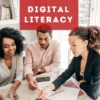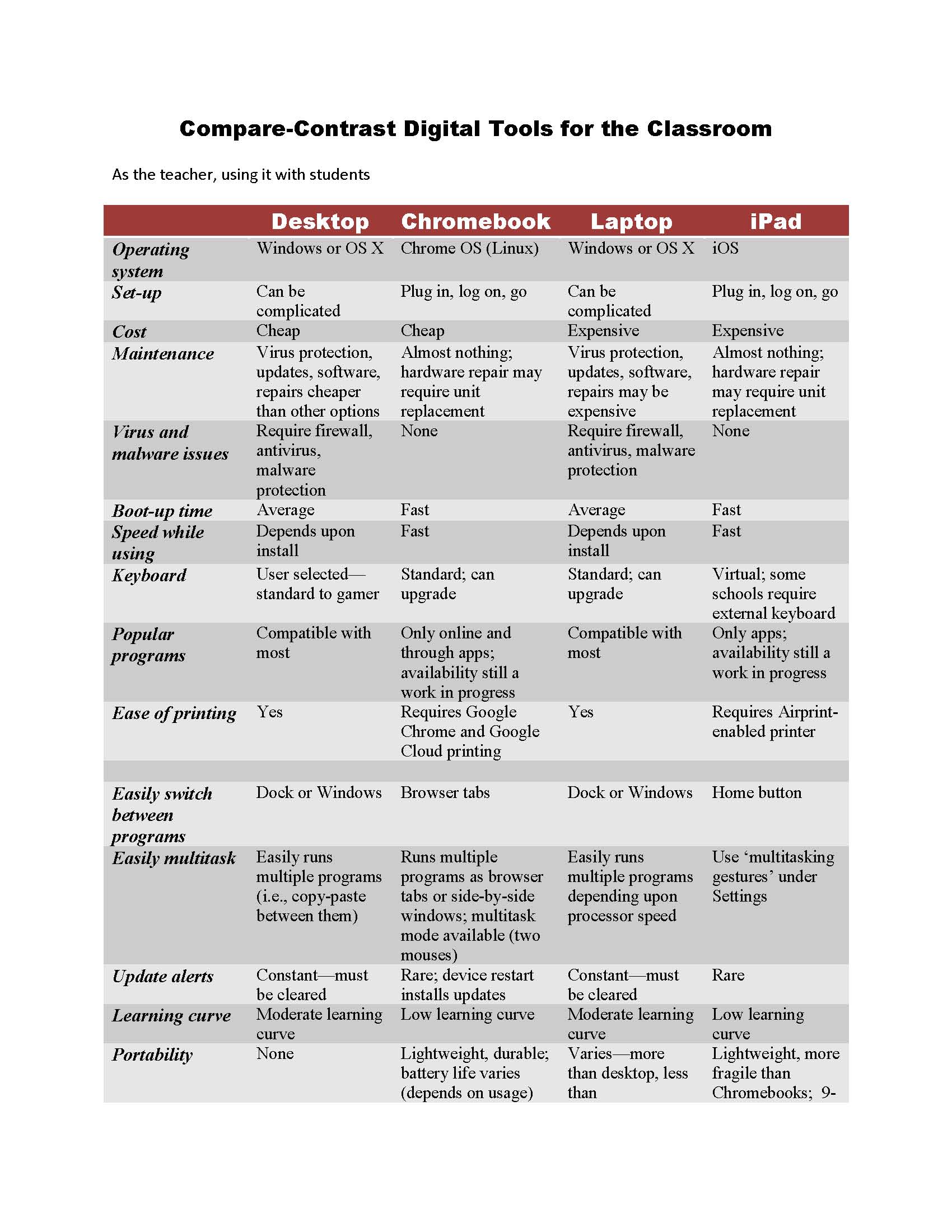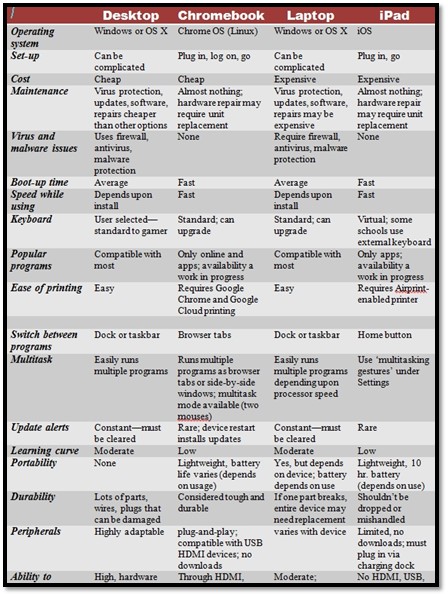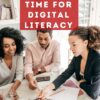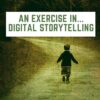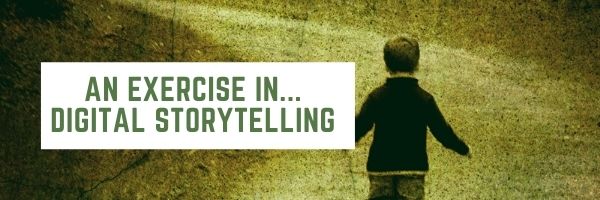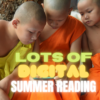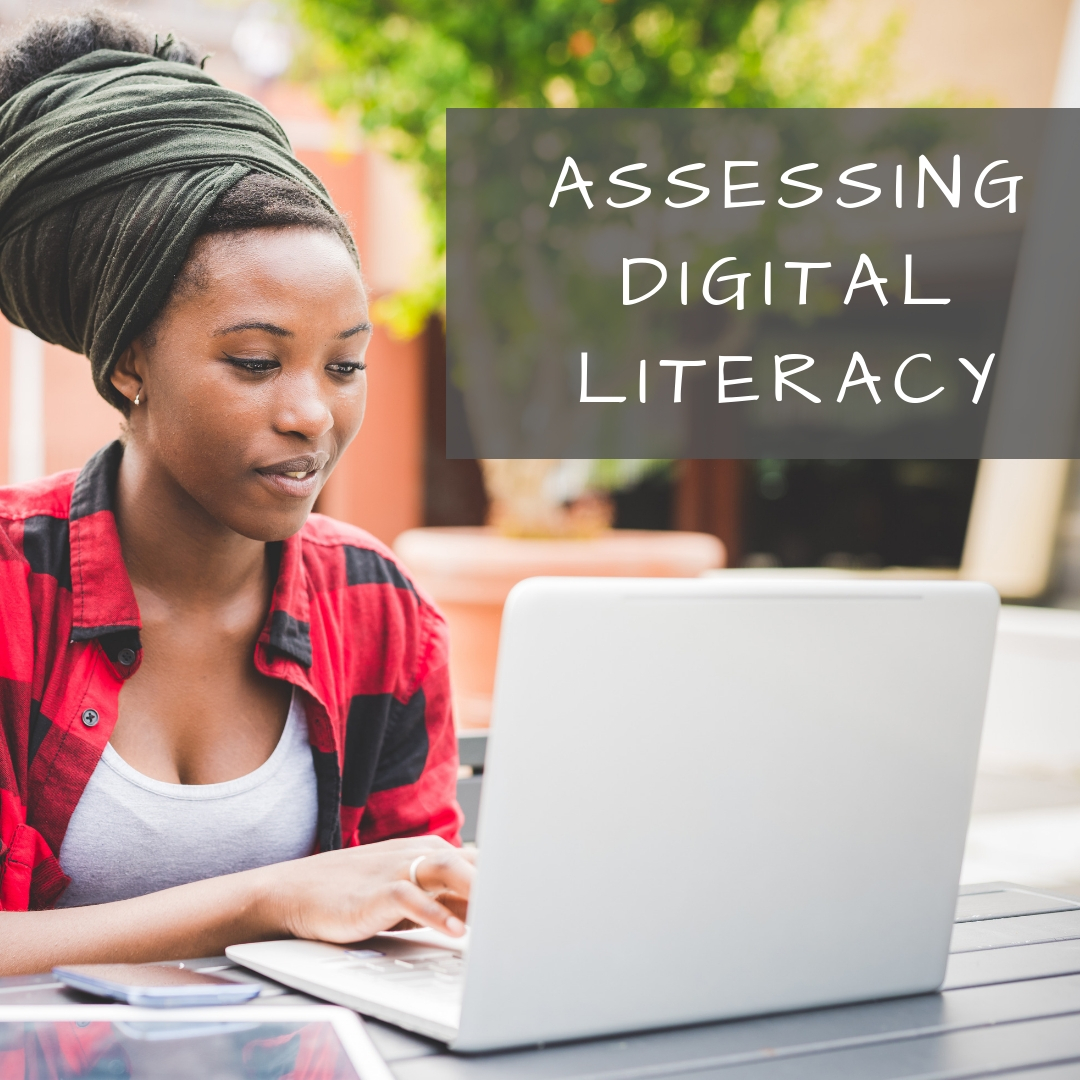
Search Results for: Digital Citizenship
Exploring the Need for Education Consultants in a Digital World
Education has become a lot more complicated the last five years. Part of that is the impact of COVID on in-person and remote teaching. Another large part is the transparency now requested/required by parents as to what is going on in the classroom. The importance of education consultants, mentors, and teacher coaches has never been more pressing. Here’s a good article from the Ask a Tech Teacher crew on what that means and how you as an educator can confront the issues:
Exploring the Need for Education Consultants in a Digital World
There is no denying that we live in a vastly different world than we did just three years ago. Just as an increasing number of businesses have moved their operations totally online, so too have many students moved to online programs for their educational needs. All grade levels are now seeing an increase in the number of students who study online since the recent pandemic forced them to do so. Even though classrooms are once again open to student enrolment, many parents have opted to keep their children at home where they feel safer for a number of reasons.
A Myriad of Reasons for Online Education
Sadly, it isn’t only fear of contagions that has prompted this but also other factors such as the rising level of violence and bullying in schools, the fear of school shootings and various factors within family life. Parents who often struggled to get kids to and from school because of work hours, can now find ways to adjust everyone’s schedule so that no one needs to be late or miss days due to conflicts that occur far too often. Some parents simply like to monitor what their kids are learning and how they are being taught.
Share this:
Tech Tip #169: What is Digital Literacy?
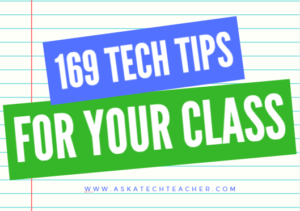 In these 169 tech-centric situations, you get an overview of pedagogy—the tech topics most important to your teaching—as well as practical strategies to address most classroom tech situations, how to scaffold these to learning, and where they provide the subtext to daily tech-infused education.
In these 169 tech-centric situations, you get an overview of pedagogy—the tech topics most important to your teaching—as well as practical strategies to address most classroom tech situations, how to scaffold these to learning, and where they provide the subtext to daily tech-infused education.
Today’s tip: What is Digital Literacy?
Category: Pedagogy
‘Digital literacy’ is one of those buzz words floated by experts as being granular to 21st-century students. It’s everywhere, on everyone’s tongue, but figuring out what it means can be daunting. ‘Literacy’ is simple: the ability to read and write–so ‘digital literacy’ should be achieving those goals digitally.
Sounds simple. The difficult is in the implementation. Here are the sixteen transformative tools, activities, and/or knowledge bases digitally-literate students should be comfortable using:
- annotation tool
- backchannel device
- class internet start page
- class website or blog
- cloud computing
- digital citizenship
- digital class calendar
- digital databases
- digital devices–such as laptops, iPads, Chromebooks, or desktops, for daily use
- online information
- sharing digitally to build knowledge
- social media
- student digital portfolios–to curate and collect work
- email–or another method of communicating quickly outside classtime (such as messaging or Twitter)
- virtual collaboration
- vocabulary tool–to quickly decode words students don’t understand
For more detail on the tools, activities, and knowledge bases above—as well as the general topic of digital literacy—visit “Digital Literacy—What is it?” on Ask a Tech Teacher.
More on Digital Literacy:
- How to Assess Digital Literacy
- Digital Literacy in Busy Classrooms
- Digital Literacy–Too Important to Skip
Sign up for a new tip each week or buy the entire 169 Real-world Ways to Put Tech into Your Classroom.
What’s your favorite tech tip in your classroom? Share it in the comments below.
Copyright ©2022 worddreams.wordpress.com – All rights reserved.
Share this:
Tech Tip 166 Which Digital Device Should I Use?
 In these 169 tech-centric situations, you get an overview of pedagogy—the tech topics most important to your teaching—as well as practical strategies to address most classroom tech situations, how to scaffold these to learning, and where they provide the subtext to daily tech-infused education.
In these 169 tech-centric situations, you get an overview of pedagogy—the tech topics most important to your teaching—as well as practical strategies to address most classroom tech situations, how to scaffold these to learning, and where they provide the subtext to daily tech-infused education.
Today’s tip: Which Digital Device Should I Use?
Category: PCs
Q: What’s the best option for me when I’m picking a digital device?
Use this compare-contrast table to evaluate your needs across four platforms:
Sign up for a new tip each week or buy the entire 169 Real-world Ways to Put Tech into Your Classroom.
What’s your favorite tech tip in your classroom? Share it in the comments below.
Jacqui Murray has been teaching K-18 technology for 30 years. She is the editor/author of over a hundred tech ed resources including a K-12 technology curriculum, K-8 keyboard curriculum, K-8 Digital Citizenship curriculum. She is an adjunct professor in tech ed, Master Teacher, webmaster for four blogs, an Amazon Vine Voice, CSTA presentation reviewer, freelance journalist on tech ed topics, and author of the tech thrillers, To Hunt a Sub and Twenty-four Days. You can find her resources at Structured Learning.
Share this:
13 Websites That Provide Lots of Digital Books for Summer Reading
 At the beginning of the 21st century, the definition of digital equity revolved around the provision of a digital device to every student. Usually, that meant desktop computers, iPads, and laptops, either in small groups or 1:1. As digital equity discussions matured and hyperbole became reality, educators found that those loudly-touted digital devices often became paperweights. The reasons were varied (teacher training, infrastructure, and professional support to name a few), but one of the most prominent was money. Good intentions to give all students access to the world’s knowledge were derailed by the cost of the websites and webtools that made that happen. Turns out — and not really a surprise — the cost of the digital devices was minor compared to the cost of the websites and webtools required to meet goals.
At the beginning of the 21st century, the definition of digital equity revolved around the provision of a digital device to every student. Usually, that meant desktop computers, iPads, and laptops, either in small groups or 1:1. As digital equity discussions matured and hyperbole became reality, educators found that those loudly-touted digital devices often became paperweights. The reasons were varied (teacher training, infrastructure, and professional support to name a few), but one of the most prominent was money. Good intentions to give all students access to the world’s knowledge were derailed by the cost of the websites and webtools that made that happen. Turns out — and not really a surprise — the cost of the digital devices was minor compared to the cost of the websites and webtools required to meet goals.
There is one bright spot in this story: Online books. Thanks to the efforts of many devoted professionals and the financial support of more, there are a wide variety of free/inexpensive sources for books that students can use for classroom activities as well as pleasure.
Here are a list of sites that offer digital books for kids to adults:
Share this:
Digital Literacy in Busy Classrooms
This is a common complaint in my grad school classes. Yes, teachers know students don’t have all of the skills they need for the technology required in education, but who has time to teach it? Newsweek has an interesting article addressing exactly that:
How Schools Can Find the Time To Teach Digital Literacy Skills
According to the U.S. Bureau of Labor Statistics, computer science jobs are projected to grow 13% between 2020 and 2030. Still, less than half of all K-12 schools in the U.S. teach computer science as part of the curriculum.
More about tech skills in the classroom
- Digital Literacy–Too Important to Skip
- How to Assess Digital Literacy
- Digital Literacy–What is it?
- Beyond Digital Literacy: How EdTech Fosters Children’s Social-Emotional Development
- 5 Strategies to Assess Student Knowledge

Share this:
Digital Literacy–Too Important to Skip
When testing moved online, it became painfully apparent to teachers how little students knew about using digital devices other than the internet, some apps, and iPads. The focus on online learning, thanks to COVID, has made that even more critical. IT Pro has an interesting article discussing the importance of digital literacy:
Digital literacy is as important as reading and writing, Vodafone claims
A study from the company found that half of 18-24-year olds have limited access to a laptop, tablet or PC
Digital literacy is becoming as important as reading and writing for young people’s future life prospects, a new report from Vodafone has found.
Limited access to an internet-connected device, or a lack of skills to use one, is preventing those entering the job market from attending online lessons or exams, applying for jobs, and gaining the necessary digital skills for many of today’s roles.
Ask a Tech Teacher has several articles on this topic that you’ll find interesting:
- How to Assess Digital Literacy
- Digital Literacy–What is it?
- Beyond Digital Literacy: How EdTech Fosters Children’s Social-Emotional Development
- 5 Strategies to Assess Student Knowledge
If you need guidance understanding how to make your students good digital citizens, check out my upcoming online class, Building Digital Citizens. It’s for college credit and starts next Monday!
@ITPro #digcit
Share this:
An Update on Digital Storytelling
A great article from Edutopia:
An Exercise in Digital Storytelling
To engage my 11th-grade English students during the 2020–21 school year, I created a digital storytelling unit. Whether they attended school in person or remotely, it was a success. Students were able to explore various frames of reference, identify a personal story to share using digital media, and experience empathy throughout the process. Digital storytelling has a permanent place in my classroom.
We’ve written several articles on digital storytelling that can extend your understanding of this tool|
Best-in-Class Digital Storytelling Tools
10 Tips for Digital Storytelling You Don’t Want to Miss
And, here are some webtools you may find useful:
Share this:
10 Digital Platforms to Teach Remotely
 There are more options for digital learning than Zoom. Check out these:
There are more options for digital learning than Zoom. Check out these:
- Big Blue Button–great conference app but embedded in LMS (not standalone)
- Canvas–with their Conference option (Big Blue Button)
- Draw Chat–virtual meeting with a whiteboard
- FaceTime–from Apple
- Google Meet–through Google Classroom or not; must use Google account and Chrome browser
- Microsoft Teams
- Skype
- Webex–from Cisco
- Webroom.net — virtual conference or meeting room
- Zoom
Share this:
12 Websites for Digital Books Summer Reading
At the beginning of the 21st century, the definition of digital equity revolved around the provision of a digital device to every student. Usually, that meant desktop computers, iPads, and laptops, either in small groups or 1:1. As digital equity discussions matured and hyperbole became reality, educators found that those loudly-touted digital devices often became paperweights. The reasons were varied (teacher training, infrastructure, and professional support to name a few), but one of the most prominent was money. Good intentions to give all students access to the world’s knowledge were derailed by the cost of the websites and webtools that made that happen. Turns out — and not really a surprise — the cost of the digital devices was minor compared to the cost of the websites and webtools required to meet goals.
There is one bright spot in this story: Online books. Thanks to the efforts of many devoted professionals and the financial support of more, there are a wide variety of free/inexpensive sources for books that students can use for classroom activities as well as pleasure.
Share this:
How to Assess Digital Literacy
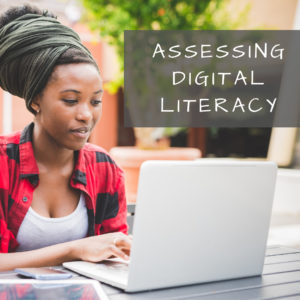 On my blog, Ask a Tech Teacher, I run a column called Dear Otto where I answer teacher questions about how to integrate technology into their classes. Of late, the most common question is, “How to I assess student digital literacy?” with a close cousin, “I am the tech integration specialist. How do I assess faculty digital literacy so I can teach them what they don’t know?”
On my blog, Ask a Tech Teacher, I run a column called Dear Otto where I answer teacher questions about how to integrate technology into their classes. Of late, the most common question is, “How to I assess student digital literacy?” with a close cousin, “I am the tech integration specialist. How do I assess faculty digital literacy so I can teach them what they don’t know?”
Happily, both can be accomplished the same way. But before I tell you how, let’s step back and talk about the meaning of “digital literacy”.
What is digital literacy?
The definition of digital literacy is pretty much what you’d expect:
“the ability to use information and communication technologies to find, evaluate, create, and communicate information, requiring both cognitive and technical skills.” –from the American Library Association
In the past, I discussed the eight skills required for students to be considered digitally literate. Today, I want to focus on the need to assess digital literacy and what tools are available to do this.
Why assess it?
Especially today–in a COVID-19 world–this is a good question. Here are the five most common reasons schools feel the need to assess student and faculty digital literacy:



